The Tourism Industry
Welcome to the Tourism section of the Remote Internship Discovery Phase. Here, you will find an overview of tourism in Fiji, including current developmental challenges and future goals for the industry.
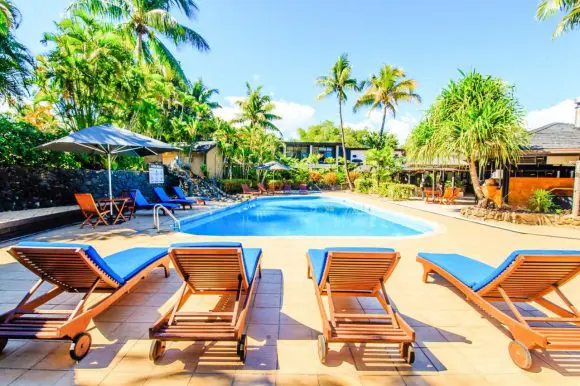
Module 1: An introduction to Tourism in Fiji
- Government Ministry
- Tourism Fiji
- Impact on Fiji’s Economy
- Initiatives
Module 2: Social and Cultural Impacts of Tourism in Fiji
- Preservation of Indigenous Culture
- Benefits of Community Engagement
Module 3: Challenges and Risk in Tourism
- Natural Disasters and Resilience
- Climate Change
- Economic Vulnerability

Module 4: Policy, Planning and infrastructure Development
- Government Policies on Tourism
- Tourism Infrastructure and Accessibility
- Tourism and Fiji’s National Development Plan
Module 5: Innovation and Technology in Tourism
- Digital Transformation- the role that social media plays in Tourism
- Smart Tourism and Analytics
- New Tourism Experiences through technology
Module 6: Education and Skills Development in Tourism
- Hospitality and Tourism Education
- Language and Cultural Training
Module 1: An Introduction to Tourism in Fiji
Fiji is renowned for its breathtaking landscapes, vibrant culture and warm hospitality. As one of the most popular tourist destinations in the Pacific and attracts visitors with its pristine beaches, crystal clear waters and tropical rain forest.The tourism industry contributes significantly to employment infrastructure and foreign exchange earnings, making it the cornerstone of Fiji’s economy.
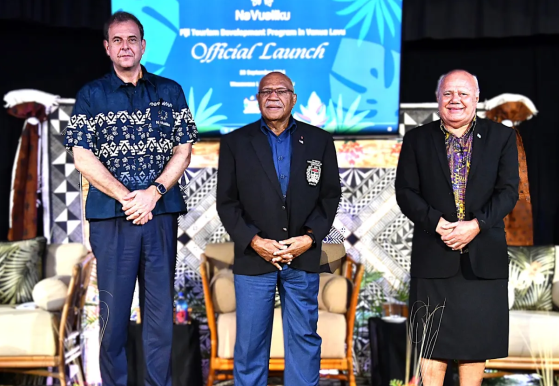
The Ministry of Tourism and Civil Aviation is the lead agency responsible for developing, regulating, and promoting Fiji’s tourism industry. It plays a key role in formulating policies and strategies to enhance the sector’s growth and competitiveness. The Ministry collaborates with stakeholders to boost Fiji’s global appeal through sustainable tourism practices and international marketing campaigns, positioning Fiji as a premier destination.
The Ministry of Commerce, Trade, Cooperatives, and Small and Medium Enterprises (SMEs) supports businesses within the tourism and hospitality sectors by fostering a conducive environment for growth. It focuses on empowering micro, small, and medium enterprises (MSMEs), such as handicraft vendors, tour operators, and local guides, who contribute significantly to the tourism industry. Additionally, the Ministry promotes trade, investment in tourism infrastructure, and partnerships between local businesses and the broader tourism ecosystem.
The Ministry of Finance, while not directly overseeing tourism, plays a crucial role in supporting the industry. It allocates funding for tourism development projects, provides tax incentives, and encourages investment in tourism infrastructure. These efforts collectively ensure the sector’s sustainability and continued contribution to Fiji’s economic growth.

Tourism Fiji spearheads global marketing campaigns to position the country as a premier travel destination, focusing on key markets such as Australia, New Zealand, North America, Europe, China, and emerging regions. These campaigns include digital marketing, trade partnerships, media promotions, and participation in international travel expos, all under the flagship slogan, ‘Fiji: Where Happiness Finds You.’ Tourism Fiji also emphasizes stakeholder engagement by collaborating with airlines, hotels, tour operators, and local businesses to develop attractive travel packages while supporting small and medium-sized enterprises (SMEs) in the tourism sector. To enhance visitor experiences, Tourism Fiji provides market insights, visitor statistics, and destination management strategies. The organization is deeply committed to promoting sustainable tourism, aligning with national goals for environmental and cultural sustainability through ecotourism initiatives, marine conservation, and efforts to reduce tourism’s carbon footprint. Cultural tourism is also a key focus, benefiting local communities and preserving Fiji’s unique heritage. Additionally, Tourism Fiji operates visitor information centers, provides resources for trip planning, and maintains an up-to-date website to assist travelers in creating memorable itineraries.
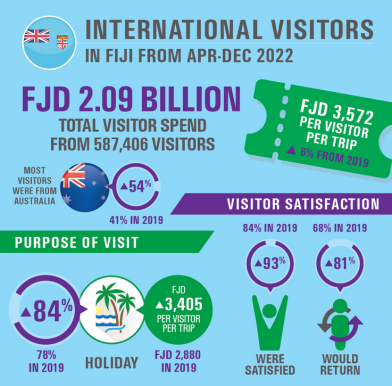
Fiji is a cornerstone of Fiji’s economy, contributing approximately 40% of the nation’s GDP and serving as the largest source of foreign exchange. The industry supports tens of thousands of jobs both directly and indirectly in sectors like agriculture, transportation and retail.
Key impacts include:
Employment– Provides livelihood for a significant portion of the population, particularly in rural and coastal areas.
Infrastructure– drives investment development in transportation energy and communication systems.
Foreign Investment- attract international funding for resorts attractions and econ-tourism ventures.
Community Benefits– Promotes income generation for local businesses and fosters culture preservation through community-based tourism.
Tourism’s growth has catalyzed economic resilience, though it also underscores the need for sustainability to migrate environmental and cultural impacts while adapting to global challenges such as climate change and market fluctuations
Module 2: Social and Cultural Impacts of Tourism
Tourism plays an important role in preserving the indigenous culture as it provides a platform for traditions and culture to be showcased and celebrated globally, while at the same time encouraging these traditions to be passed on to the future generations.
- The tourists are introduced to cultural and traditional ceremonies such as kava ceremonies, “meke”, chants and songs, which fosters a global appreciation, keeping the traditions alive.
- The tourism industry also creates a market for traditional arts and crafts such as mats, masi and the most popular wood carvings, this encourages this art and craft skill to be passed down from generation to generation. The revenue that is earned from the arts and crafts business also sustains the craft and skill.
- The tourism industry also seeks to preserve the iTaukei language by encouraging and teaching tourists basic phrases during their visit to the country.
Watch Mr. Altaab Khan share his valuable insights on the social and cultural impacts of the Tourism Industry.
Village tours and home stays are community- based initiatives that play a major role in maintaining culture and traditions. They offer tourists an authentic iTaukei village experience, which encourages young people to learn and embrace their culture and traditions. Additionally, these community based initiatives generate revenue for the community.
Community- based initiatives also create employment within the community which contributes to the welfare of the community members.
Module 3: Challenges and Risk in Tourism
Fiji is one of the most vulnerable nations to climate change and climate- related disasters. Fiji has extremely high exposure to tropical cyclones. Cyclones usually occur during the November to April wet season and are less common during the El-Nino periods. Cyclones frequently result in the loss of life and cause significant economic damages which has hindered economic growth.
Natural disasters have significant impacts on the tourism industry such as damage to infrastructure, and causes immense damages to hotels, roads, airports and other important infrastructure which would often lead to costly repairs and disruptions.
Despite the challenges that natural disasters pose to the tourism industry, strategies have been implemented to prepare resorts, hotels, and marinas for such events. These include early warning systems and comprehensive emergency plans. Additionally, tourism employers and employees receive training in disaster management, first aid and crisis communication to ensure effective responses during emergencies.
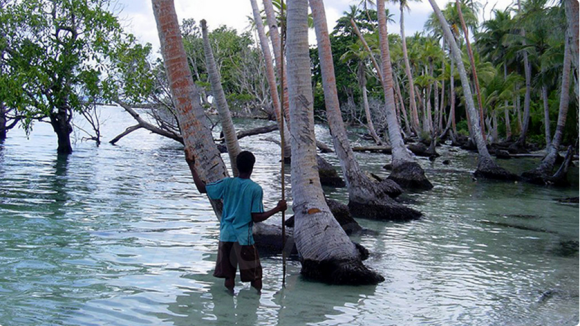
The tourism sector is highly vulnerable to climate change impacts because of the close connections to the environment and climate itself. Similar to the other Pacific Island countries, Fiji confronts climate change issues such as sea level rise which leads to coastal erosion and coastal inundation, warming surface temperature leading to coral bleaching, increased frequency intensity of tropical cyclones, floods and scarcity of water resources.
Climate Change will have direct and indirect impacts on the tourism sector. Coastal deterioration caused by beach erosion and coral bleaching are two major issues for Fiji’s tourism sector and will be expected to affect the attractiveness of the destination for tourists and cause a decrease in the tourism destination value.
Explore the pdfs below to see how Fiji intends to achieve the UN SDGs, as well as reviewing their current progress in achieving them.
Aiming to minimize the negative impacts while identifying and taking advantage of opportunities or positive changes resulting from climate change, adaptation efforts in the tourism sector involve various stakeholders. These include individuals, organizations, public and private sectors, as well as household and communities.
The tourism adaptation to climate change can be categorized into five key areas:
- Technical Adaptation– Modifications to physical infrastructure or provisions to withstand climate impacts.
- Business Management– Adjustments made by private sector businesses to enhance resilience and sustainability.
- Behavioral Adaptation– Changes in the behavior of tourists or local communities to reduce vulnerability.
- Policy Adaptation– Development of government plans or strategies to support climate resilience strategies.
The tourism industry is increasingly addressing climate change by adopting strategies centered on resilience, sustainability and mitigation. These efforts are designed to minimize risks, protect natural and cultural assets and ensure the long-term viability of destinations.
Tourism is a significant contributor to the global economy, especially for countries that are heavily dependent on it as a primary source of income. However, this reliance also makes the industry and the economies it supports, highly vulnerable to various internal and external shocks.
The COVID-19 Pandemic had a great impact on Fiji’s tourism- dependent economy which disrupted livelihoods, businesses and the nation’s GDP with the revenue plummeting by over 70%, thousands of workers in tourism related sectors, such as hotels, airlines and tour operations faced layoffs or reduced working hours and many small and medium- sized businesses and tourism operators including resorts and restaurants struggled to survive with some closing permanently.
The COVID-19 pandemic was a wake up call for Fiji’s tourism dependent economy, while the impacts were severe, the recovery phase presents opportunities to rebuild the tourism sector more sustainability and resiliently, with the gradual return of international travelers, Fiji is focusing on balancing economic revival with the long-term environmental and social goals.
Module 4: Policy, Planning and Infrastructure Development
Strategic policies play a pivotal role in shaping the Ministry of Tourism’s approach to fostering a thriving, inclusive, and sustainable tourism sector. These policies serve as a roadmap for achieving long-term goals, ensuring that the tourism industry contributes to economic growth, environmental conservation, and cultural preservation. By addressing critical areas such as infrastructure development, workforce empowerment, environmental protection, and community engagement, strategic policies enable the Ministry to navigate challenges and leverage opportunities in a dynamic global tourism landscape. Focused on aligning with international best practices and local aspirations, these policies are designed to create a balanced ecosystem where tourism supports equitable benefits, safeguards natural and cultural resources, and promotes innovation for future resilience. Through strategic collaboration with stakeholders, the Ministry of Tourism aims to position the sector as a cornerstone of national prosperity and a model for sustainable development.
The Fiji National Sustainable Tourism Framework (2024 to 2034) presents the collective visions and goals of the Fijian Tourism industry. It outlines the overreaching vision of transforming the sector to ensure a sustainable future that has the economic and social well-being of our people, our ocean, our environment and our culture and its best
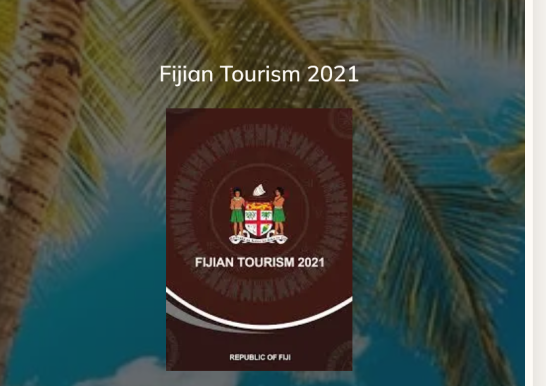
The Fijian Tourism 2021 (FT2021) is a comprehensive development plan that has been prepared by the Fijian Government to grow Fiji’s tourism industry from 19 billion in 2017 to an industry worth 2.2 billion by the end of 2021.
The overreaching focus of the plan is to maximize tourism yield while achieving a sustainable rate of visitor arrivals growth. The strategies that are outlined in the FT2021 are aligned to the overall vision of the Fijian Government which is to provide the enabling environment to elevate the tourism sector to provide livelihood, income and to benefit all Fijians
- Building an industry that is resilient, productive and focuses on equality.
- Marketing the brand in the traditional markets to explore the untapped potential and also targeting new and emerging markets of Asia.
- Investments in infrastructure that will lead to investment in the tourism industry.
- Influencing quality investment to grow the industry in a sustainable manner. Provision of the best tourism industry incentives.
- Rolling out business support programmes that will provide tourism businesses (especially micro, small, and medium businesses, taking advantage of international online platforms.
- Capacity building in the tourism industry to enable improvement in standards. We will also target specialized training and address skills shortages in the tourism industry.
- Enhanced coordination between Government Ministries and promotion agencies to firstly, collectively and better from the tourism sector are spread further in the economy.
- Leveraging international events, better targeting benefits to Fiji.
- Finally, ensure the industry is prepared for climate change, global economic shocks and other risks.
In order for the continuous growth of the tourism industry, the investment in essential services and infrastructure is necessary. These investments can stimulate visitor arrivals, protect the environment, mitigate risk from natural and man-made crises and leverage domestic and foreign investment.

Fiji’s primary gateway for air travel is Nadi International Airport, a major airline hub for the South Pacific. Nausori International Airport, situated in Suva, Fiji’s capital, primarily serves domestic flights and a limited number of international routes to destinations like New Zealand, Australia, and other Pacific Islands. Fiji enjoys direct air connectivity to key markets including Australia, New Zealand, the USA, Hong Kong, Singapore, Japan, and South Korea. The introduction of direct flights to Singapore has opened up opportunities in Southeast Asia and strengthened access to emerging markets such as India.
As Fiji’s national carrier, Fiji Airways dominates international air travel to and from the country, with record-breaking passenger numbers, particularly in July. Under its current Air Services Agreement, Fiji has the capacity to expand connectivity with 28 countries and 11 airlines. Fiji Airways has been at the forefront of this growth, implementing a five-year strategy (2014–2017) to enhance its financial performance and expand its reach. This strategic focus positions Fiji as an increasingly accessible and desirable destination for global travelers.
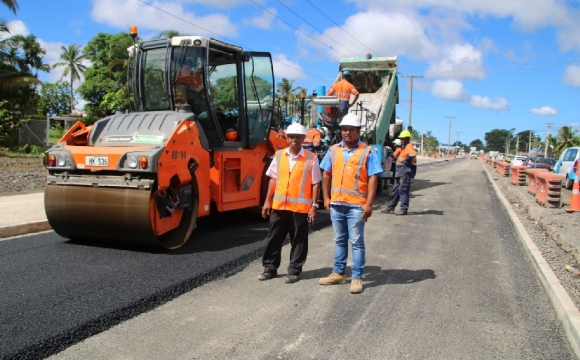
Fiji’s road network primarily spans the islands of Viti Levu, Vanua Levu, Ovalau, and Taveuni, with smaller sections of unsealed roads found on islands like Kadavu, Koro, Gau, Rotuma, and Moala. Most key tourism areas on Viti Levu have sealed road access, and many tourism regions on Vanua Levu are similarly accessible. While road access generally does not pose significant challenges to tourism development in most parts of Fiji, inadequate road infrastructure in the country’s interior often restricts opportunities for tourism growth. This limitation hinders the distribution of tourism benefits beyond traditional resort areas.
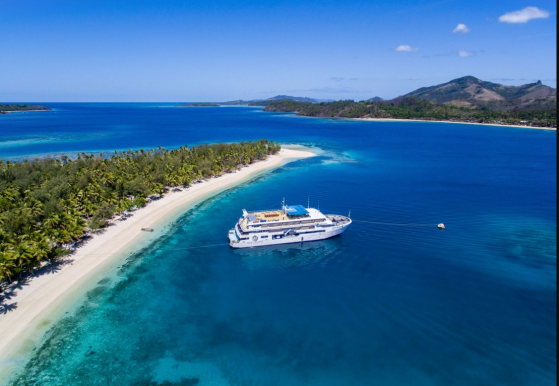
Cruise vessels and yachts are other transportation services closely linked to the tourism sector.There is still much potential for the development of this sector, which includes the improvement of facilities and services to visiting yachting and cruise visitors.The cruise industry is expected to continue performing well during the period of the FT 2021, with many cruise companies forecasting strong global growth in passenger numbers. The Cruise Line International Association (CLIA) estimates 28 million people globally will take a cruise in 2018.
Tourism plays a central role in Fiji’s National Development Plan (NDP) as a driver of economic growth, social progress, and environmental sustainability. The NDP emphasizes expanding tourism’s contribution to GDP and job creation by diversifying offerings such as Eco-tourism, adventure tourism, and cultural tourism, while reducing reliance on traditional sun-and-sand experiences. It aims to promote inclusive growth by extending tourism activities to rural and undeserved areas, ensuring communities directly benefit through initiatives like village tours, home stays, and traditional handicrafts. Infrastructure development is also a priority, with planned improvements to transportation networks, utilities, and telecommunications to enhance accessibility and support sustainable tourism zones.
Sustainability is a key focus, with measures encouraging environmentally friendly practices, renewable energy adoption, and climate-resilient infrastructure to safeguard Fiji’s natural assets. Efforts to preserve iTaukei culture, language, and heritage are integrated into the tourism strategy, positioning these unique elements as central to Fiji’s global branding. Additionally, the NDP supports training programs to build a skilled and diverse workforce, promote gender equality, and align education with industry needs. Recognizing the vulnerabilities posed by climate change and natural disasters, the NDP outlines strategies for preparedness, recovery, and resilience, including early warning systems, disaster recovery plans, and Eco-tourism initiatives such as coral reef restoration and mangrove planting. With these goals, the NDP seeks to transform Fiji’s tourism sector into a globally recognized model of sustainability while ensuring long-term benefits for its people and environment.
Fiji's National Development PlanModule 5: Innovation and Technology in Tourism
Social media plays a transformative role in Fiji’s tourism industry, driving global marketing, enhancing customer engagement, and strengthening the nation’s tourism brand. Platforms like Instagram, Facebook, TikTok, and YouTube are used to showcase Fiji’s breathtaking landscapes, vibrant culture, and unique experiences, with campaigns such as “Fiji: Where Happiness Finds You” captivating audiences worldwide. Collaborations with influencers and travel bloggers further amplify Fiji’s reach by creating authentic, visually appealing content. Social media also fosters direct communication between tourists, businesses, and tourism boards, providing real-time updates, personalized travel advice, and post-visit sharing of experiences, which serve as powerful word-of-mouth promotion. It plays a key role in promoting eco-tourism and sustainability by highlighting efforts in conservation, eco-friendly resorts, and cultural preservation, attracting environmentally conscious travelers. Additionally, during crises such as COVID-19 or natural disasters, social media acts as a critical channel for disseminating timely updates and ensuring accurate communication with travelers. It also supports local businesses, enabling them to market their services, engage with international audiences, and promote lesser-known destinations like Vanua Levu and the outer islands. By leveraging the power of social media, Fiji’s tourism industry continues to evolve, meeting modern traveler expectations and sustaining its position as a premier global destination.
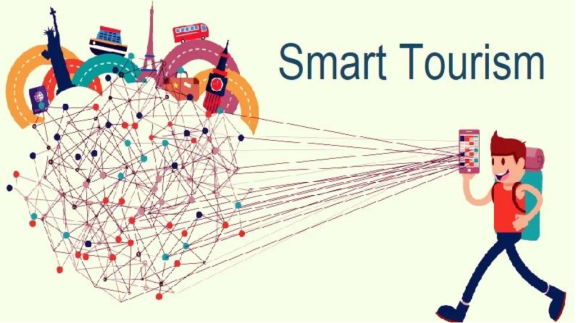
Smart tourism combines advanced technologies, data analytics, and digital tools to enhance visitor experiences, improve operational efficiency, and promote sustainability within the tourism industry. It leverages technologies like artificial intelligence, the Internet of Things (IoT), and augmented reality (AR) to provide real-time information, personalized services, and immersive experiences, such as virtual tours and interactive guides. Data analytics plays a pivotal role by collecting and interpreting traveler data to predict trends, optimize marketing, and tailor services to individual preferences. It also supports sustainability by monitoring environmental impacts, guiding eco-friendly practices, and managing resources efficiently. Smart tourism improves infrastructure by streamlining transportation, managing crowds, and enhancing booking systems, while also aiding crisis management through predictive tools. Despite challenges like data privacy concerns, the digital divide, and implementation costs, smart tourism is transforming the industry, driving economic growth, and ensuring destinations remain competitive in an increasingly digital world.

Technology is transforming Fiji’s tourism industry, offering innovative experiences that enhance how visitors explore the islands’ natural beauty and rich culture. Virtual Reality (VR) allows potential travelers to immerse themselves in Fiji’s stunning beaches, vibrant marine life, and cultural festivals from anywhere in the world, inspiring them to visit. Augmented Reality (AR) enhances on-site experiences by bringing Fiji’s historical and cultural landmarks to life, such as digitally reconstructing ancient village sites or creating interactive museum displays. Smart travel assistants and AI-powered chat bots are increasingly being used by resorts and tourism operators to provide real-time support for bookings, activity recommendations, and local insights. Mobile applications have become essential tools for travelers, offering features like interactive maps, cultural guides, and Eco-tourism activity suggestions, connecting visitors to authentic Fijian experiences. Additionally, contactless technologies, including mobile payment systems and digital check-ins at resorts, streamline travel logistics and improve convenience. These technological innovations are not only elevating the visitor experience in Fiji but also promoting sustainable and culturally immersive tourism.
Module 6: Education and Skills Development in Tourism
Education and skills development play a pivotal role in the growth and sustainability of Fiji’s tourism industry, ensuring that the workforce remains competitive and capable of meeting evolving industry demands. Recognizing tourism as a key driver of economic growth, Fiji invests in training programs, educational institutions, and partnerships to equip individuals with the skills and knowledge required for various roles within the sector.
Institutions such as the Fiji National University (FNU) and the University of the South Pacific (USP) offer specialized courses in tourism and hospitality management, providing theoretical and practical training in areas like hotel operations, customer service, and sustainable tourism practices. These programs prepare students for careers in resorts, travel agencies, tour operations, and culinary arts. Short-term courses and certifications, often facilitated by organizations like the Fiji Hotel and Tourism Association (FHTA), focus on upskilling existing workers in areas such as food and beverage service, housekeeping, and leadership.
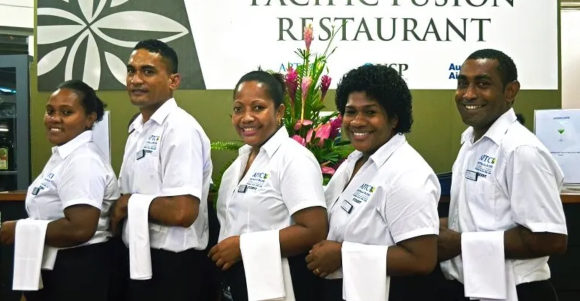
The tourism industry also collaborates with international partners to bring global expertise and standards to Fiji. For example, vocational training programs funded by international organizations and NGOs provide hands-on experience in sustainable tourism practices, cultural preservation, and eco-tourism. These initiatives ensure that local communities can actively participate in and benefit from the tourism economy.
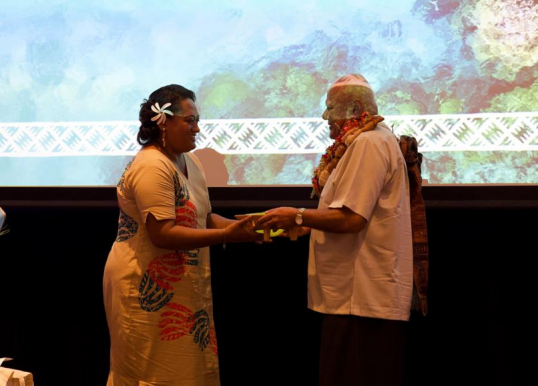
The government emphasizes youth engagement in tourism through scholarships, internships, and apprenticeship programs, enabling young Fijians to gain experience and build careers in the industry. Programs like “Masi” (Modeling, Apprenticeships, Scholarships, and Internships) ensure practical exposure for students in real-world tourism settings.
Skills development extends to community-based tourism initiatives, where locals are trained to manage home stays, conduct village tours, and showcase traditional crafts and cultural performances. This not only enhances the visitor experience but also empowers communities economically while preserving Fijian heritage.
As Fiji continues to grow as a global tourist destination, education and skills development remain essential for ensuring a qualified, adaptable, and innovative workforce that can support a sustainable and thriving tourism industry.
Language and cultural training are integral components of Fiji’s tourism industry, reflecting the nation’s commitment to providing authentic and memorable visitor experiences. These initiatives ensure that tourism professionals, including resort staff, tour guides, and community hosts, are equipped to effectively communicate with international tourists while showcasing Fiji’s rich cultural heritage.

English, as the official language, serves as a common medium for communication in Fiji’s tourism sector. However, with an increasing number of visitors from diverse regions such as China, Japan, and Europe, language training programs have expanded to include Mandarin, Japanese, and other foreign languages. This training allows tourism workers to offer personalized services, enhancing guest satisfaction and creating a welcoming environment.
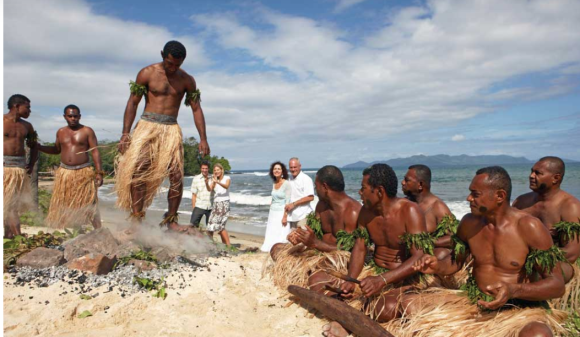
Cultural training is equally vital, as it ensures that Fijian traditions, values, and customs are accurately represented and shared with visitors. Programs often include education on iTaukei protocols, such as the proper conduct during a kava ceremony, traditional storytelling, and the meaning behind cultural practices and crafts. This knowledge allows tourism professionals to act as ambassadors of Fijian culture, fostering appreciation and respect among tourists.

For community-based tourism initiatives, language and cultural training help locals effectively manage interactions with tourists. Hosts of village tours and homestays are trained to explain traditions, interpret local dialects, and answer questions about Fijian life. This not only enriches the visitor experience but also helps preserve Fiji’s cultural identity by encouraging communities to actively participate in sharing their heritage.
Collaborations between government bodies, such as the Ministry of Tourism, and organizations like Tourism Fiji and the Fiji Hotel and Tourism Association (FHTA), ensure that language and cultural training remain priorities in workforce development. These initiatives also align with Fiji’s broader goals of promoting sustainable and culturally immersive tourism, making the industry a bridge between global visitors and the unique Fijian way of life.







